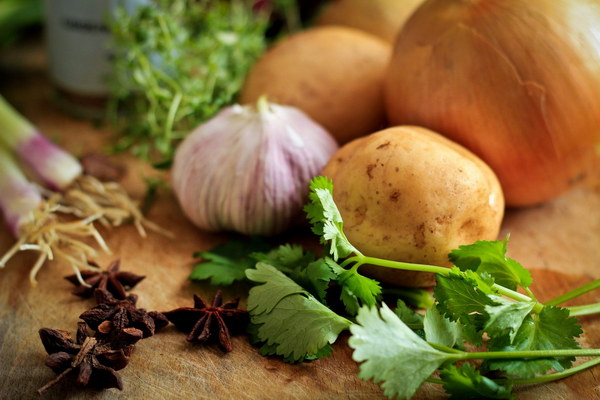Harmonizing Your Wellbeing A Comprehensive Guide to Traditional Chinese Medicine for Womens Health
In the realm of holistic wellness, Traditional Chinese Medicine (TCM) has been a beacon of health and vitality for centuries. TCM offers a unique perspective on women’s health, focusing on balance, harmony, and the natural flow of Qi (vital energy). This comprehensive guide delves into the wealth of knowledge that TCM provides for women, aiming to empower individuals to take charge of their health and well-being.
I. Understanding TCM for Women's Health
TCM views the female body as a delicate balance between Yin (feminine, cooling, and nurturing) and Yang (masculine, warming, and energizing) energies. When this balance is disrupted, women may experience a range of health issues, including menstrual disorders, fertility challenges, and menopausal symptoms. TCM aims to restore this balance through various modalities, such as herbal medicine, acupuncture, diet, and exercise.
II. Herbal Medicine
Herbal medicine plays a crucial role in TCM for women’s health. Here are some common herbs and their benefits:
1. Dong Quai: Known as the female ginseng, Dong Quai is believed to balance hormones and alleviate menstrual cramps.
2. Chuan Xiong: This herb is often used to treat menstrual disorders, including irregular periods and heavy bleeding.
3. Peony Root: Peony Root is known for its anti-inflammatory properties, making it useful in treating endometriosis and dysmenorrhea.
4. Licorice Root: As a harmonizer, Licorice Root is often included in herbal formulas to balance other herbs and enhance their effectiveness.
III. Acupuncture
Acupuncture is another vital component of TCM for women’s health. By inserting fine needles into specific points on the body, acupuncturists aim to restore the flow of Qi and balance the body's Yin and Yang energies. Acupuncture can be beneficial for:
1. Menstrual disorders
2. Fertility issues
3. Menopausal symptoms
4. Anxiety and stress
5. Chronic pain
IV. Diet and Lifestyle
Diet and lifestyle play a significant role in maintaining women's health according to TCM. Here are some key tips:
1. Consume a balanced diet rich in whole grains, vegetables, fruits, and lean proteins.
2. Avoid cold, raw, and spicy foods, especially during menstruation.
3. Practice regular exercise, such as yoga, tai chi, or walking, to promote blood circulation and Qi flow.
4. Ensure adequate sleep and rest, as TCM believes that rest is essential for the body's healing process.
5. Incorporate stress-relief techniques, such as meditation or deep breathing exercises, into your daily routine.
V. Fertility and Pregnancy
TCM offers a wealth of knowledge and treatments for fertility and pregnancy. Some key points include:
1. Fertility herbs, such as Schisandra and Goji Berry, are believed to enhance fertility and support reproductive health.

2. Acupuncture and moxibustion can be used to improve ovarian function and regulate menstrual cycles.
3. TCM emphasizes the importance of a healthy diet, stress management, and emotional well-being during pregnancy.
VI. Menopause
Menopause is a significant life transition for women, and TCM offers natural remedies to alleviate menopausal symptoms, such as hot flashes, night sweats, and mood swings. Some common treatments include:
1. Herbal formulas, such as Rehmannia and Peony Combination, to nourish the blood and balance Yin and Yang.
2. Acupuncture to regulate hormone levels and reduce menopausal symptoms.
3. Diet and lifestyle adjustments, including a balanced diet, regular exercise, and stress management.
In conclusion, Traditional Chinese Medicine provides a holistic approach to women's health, focusing on balance, harmony, and the natural flow of Qi. By incorporating TCM practices into your daily routine, you can enhance your well-being, alleviate health issues, and embrace the various stages of life with grace and vitality.









